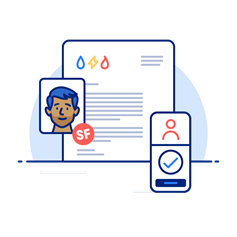How to reduce the cost of your credit and store card debt
If you’re really struggling with your card bills, get free, confidential and impartial advice and support from a debt advice organisation. Paying the minimum amount each month makes it feel like the debt is affordable. But this can be a bad idea.
Pay more than the minimum repayment
If you are on a 0% rate for an introductory period, paying only the minimum each month will make only small inroads into your debt - and when the interest-free period ends it can cost a lot to repay the balance even if you don’t carry on spending.
Also, if you make only minimum repayments, this will show up on your credit file, and other companies might assume you’re struggling and will be more reluctant to lend you money.
This could even affect your chance of getting a mortgage.
Always try to repay as much as you can. Even if you only increase it by a small amount each month, it can make a huge difference.
Pay the most expensive card first
If you have store cards, they will probably be more expensive than credit card debts, so make sure you pay them off first.
Credit cards also charge different rates of interest. This will show on your credit card statement.
Out of all your cards, pay the most on the one with the highest interest rate first, depending upon what kind of balances you have on the card - whether purchases, balance transfers or cash withdrawals.
Make sure you pay at least the minimum payment on all your cards, otherwise you will incur charges.
Get a balance transfer card
If you have a good credit rating you might be able to move your current credit card balance to another credit card offering a low or 0% deal.
There’s usually a fee to pay for this of between 1.5% and 3% of the balance transferred, but it can be worth it.
You need a good credit rating to qualify for the best balance transfer deals. If you have a poor credit rating find out how to improve it.
Work out how much you could save each month by switching using the Which? balance transfer calculator.
Debt consolidation
If you have several high cost debts one thing you could explore is debt consolidation, which means that you will only have to make one monthly payment rather than several monthly payments to cover your debts.
Find out more about Salary Finance salary-linked products click here.
Top tips
- If you switch to a 0% balance transfer deal, make sure you pay it off - or pay as much as you can before the deal ends.
- Ask the lender for a quote before applying. If they need to do a credit reference agency (CRA) check before quoting your APR, ask them to make a ‘quotation search’. This does not leave a footprint on your credit file, unlike an ‘application search’. Too many applications within a short period could suggest you are desperate for credit.
- Don’t apply for a card before you know it’s right for you. Read all the information carefully, and compare interest rates and charges.
- Close old card accounts and cut up cards to help you resist the temptation to keep on spending on them and so build up more debts.
- When going for a 0% deal it’s vital to make a note of when the introductory offer ends. Aim to pay it off before then if you can.
- Repay your cards with savings. Use your savings to repay expensive card debts unless you have more urgent priority debts. You might lose interest on your savings, but you will save much more in the long term. This is because you’ll pay far less interest on your debt.
You may also be interested in...

Sign up to our newsletter
Our newsletters bring you the latest articles to help you improve your financial wellbeing.
If you want to consent to receiving our newsletter please enter your email below to subscribe. If at any point you want to withdraw your consent please email hello@salaryfinance.com. For more information about how we use your personal data see our privacy notice.


